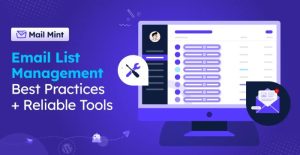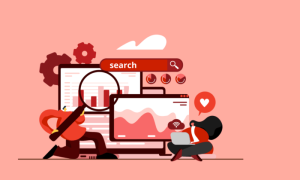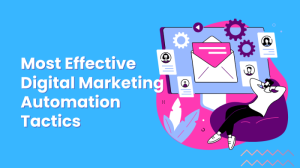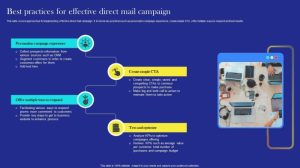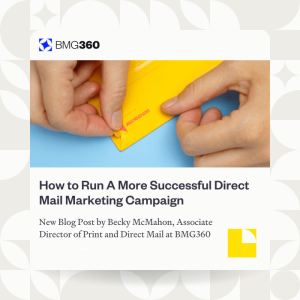
Dive into the world of PPC advertising for beginners where we unravel the mysteries of digital marketing in a fun and engaging way. Get ready to supercharge your online presence with this essential guide!
PPC Advertising for Beginners
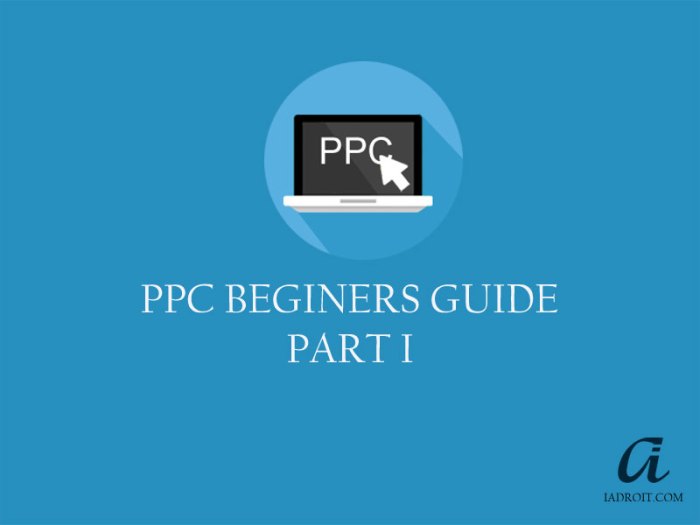
PPC advertising, or pay-per-click advertising, is a digital marketing strategy where advertisers pay a fee each time their ad is clicked. It is a way to buy visits to your site, rather than attempting to earn those visits organically.
Benefits of Using PPC Advertising for Beginners
- Immediate Results: PPC campaigns can drive traffic to your website quickly, providing instant visibility.
- Targeted Reach: You can target specific audiences based on demographics, interests, and behaviors.
- Measurable ROI: PPC platforms provide detailed analytics, allowing you to track the performance of your campaigns and adjust as needed.
- Cost-Effective: You only pay when someone clicks on your ad, making it a cost-effective advertising method.
Key Components of a Successful PPC Campaign
- Research: Identify relevant s that your target audience is searching for.
- Compelling Ad Copy: Create engaging ad copy that entices users to click on your ad.
- Landing Page Optimization: Ensure your landing page is relevant to the ad and provides a seamless user experience.
- Budget Management: Set a budget for your campaign and monitor spending to maximize ROI.
- A/B Testing: Test different elements of your ads to optimize performance and improve results over time.
Marketing E-Commerce
In the world of e-commerce, marketing plays a crucial role in reaching and engaging with potential customers. Effective marketing strategies can help businesses stand out in a crowded online marketplace, increase brand awareness, drive traffic to their websites, and ultimately boost sales.
Importance of Marketing in E-Commerce
Marketing in e-commerce is essential for several reasons:
- Building brand awareness: Marketing helps to create a strong brand presence in the online space, making it easier for customers to recognize and remember your brand.
- Driving traffic: Through various marketing channels such as social media, email, and search engine optimization, businesses can attract more visitors to their websites.
- Increasing sales: By strategically promoting products and offers, marketing can lead to higher conversion rates and increased revenue.
- Engaging with customers: Marketing allows businesses to communicate with their target audience, gather feedback, and build relationships that lead to customer loyalty.
Strategies for Effective E-Commerce Marketing
To succeed in e-commerce marketing, businesses can implement the following strategies:
- Search Engine Optimization (): Optimizing website content for search engines can improve visibility and drive organic traffic.
- Content Marketing: Creating valuable and relevant content can attract and engage customers, positioning the business as an authority in its industry.
- Social Media Marketing: Leveraging platforms like Facebook, Instagram, and Twitter can help businesses connect with their audience and promote products effectively.
- Email Marketing: Sending personalized and targeted emails to subscribers can drive conversions and nurture customer relationships.
Comparison of Traditional Marketing Methods with E-Commerce Marketing Approaches
While traditional marketing methods like print ads, TV commercials, and direct mail are still relevant, e-commerce marketing approaches offer unique advantages:
- Targeted Advertising: E-commerce marketing allows businesses to target specific demographics, interests, and behaviors, resulting in more effective campaigns.
- Real-Time Data Analysis: With e-commerce marketing, businesses can track and analyze customer behavior in real-time, allowing for quick adjustments and optimizations.
- Global Reach: E-commerce marketing enables businesses to reach a global audience, breaking geographical barriers and expanding market reach.
- Cost-Effectiveness: Compared to traditional marketing, e-commerce marketing can be more cost-effective, with options for scalable budgets and measurable ROI.
Advertising
Advertising plays a crucial role in promoting products or services by creating awareness, generating interest, and ultimately driving sales. It helps businesses reach their target audience and communicate the benefits of their offerings effectively.
Examples of Successful Advertising Campaigns
- The “Share a Coke” campaign by Coca-Cola, where they personalized their bottles with popular names, leading to a significant increase in sales and social media engagement.
- The “Just Do It” campaign by Nike, which focused on inspiring people to push their limits and pursue their dreams, resulting in increased brand loyalty and market share.
- The “Dumb Ways to Die” campaign by Metro Trains, an innovative approach to promoting rail safety through a catchy and memorable song, leading to a significant decrease in accidents.
The Impact of Digital Advertising on Modern Businesses
Digital advertising has revolutionized the way businesses promote their products or services. It offers targeted reach, real-time data analytics, and the ability to personalize messaging based on user behavior. This has allowed businesses to optimize their marketing efforts, increase ROI, and reach a wider audience more effectively than traditional advertising methods.
Affiliate Marketing
Affiliate marketing is a popular strategy where businesses pay individuals or other companies (affiliates) a commission for driving traffic or sales to their website through the affiliate’s marketing efforts.
How Affiliate Marketing Works
Affiliate marketing works by the affiliate promoting a product or service through unique tracking links. When a customer clicks on the link and makes a purchase, the affiliate earns a commission. This commission is often a percentage of the sale or a fixed amount agreed upon beforehand.
Tips for Beginners in Affiliate Marketing
- Choose the right niche: Select a niche that you are passionate about and have knowledge of to make it easier to create valuable content.
- Research affiliate programs: Look for reputable affiliate programs that offer products or services relevant to your niche.
- Create quality content: Produce high-quality content that provides value to your audience and promotes the affiliate products subtly.
- Disclose your affiliate relationships: Be transparent with your audience about your affiliate partnerships to build trust.
- Track and analyze your results: Monitor your affiliate marketing campaigns to understand what is working and optimize your strategies for better results.
Advantages of Incorporating Affiliate Marketing
- Low risk: As you only pay for actual sales or leads generated, affiliate marketing is a cost-effective advertising strategy.
- Increased reach: Affiliates can help reach a wider audience that you may not have access to otherwise.
- Enhanced credibility: When reputable affiliates promote your products or services, it can enhance your brand’s credibility and trustworthiness.
- Passive income potential: Once set up, affiliate marketing can generate passive income as long as the affiliate links are active and driving traffic.
Branding

Branding is the process of creating a unique identity for a product, service, or company in the minds of consumers. It involves establishing a distinct image, message, and reputation that sets a brand apart from its competitors. Effective branding can help build trust, loyalty, and recognition among customers, ultimately driving sales and success in the market.
Examples of Successful Branding Strategies
- Apple: Known for its sleek design, innovative technology, and user-friendly products, Apple has built a strong brand that resonates with consumers worldwide. The company’s branding focuses on simplicity, creativity, and quality, which has helped it become one of the most valuable brands in the world.
- Nike: With its iconic swoosh logo, “Just Do It” slogan, and celebrity endorsements, Nike has successfully positioned itself as a leader in the athletic footwear and apparel industry. The brand’s emphasis on performance, empowerment, and inspiration has solidified its place in the market.
- Coca-Cola: Coca-Cola’s branding is centered around happiness, nostalgia, and togetherness. Through consistent messaging, visuals, and experiences, the company has created a timeless brand that evokes positive emotions and memories for consumers.
How Branding Influences Consumer Perception and Loyalty
Branding plays a crucial role in shaping how consumers perceive a product or company. A strong brand can create a positive impression, instill trust, and differentiate a business from competitors. By consistently delivering on its brand promise and values, a company can build customer loyalty and advocacy over time.
Direct Marketing
Direct marketing is a strategy used by businesses to communicate directly with potential customers in order to promote products or services. This approach allows companies to tailor their marketing efforts to specific individuals or groups, making it more personalized and targeted.
Channels Used in Direct Marketing
- Email Marketing: Sending promotional emails to a list of subscribers who have opted in to receive communication from the company.
- Direct Mail: Sending physical mail, such as postcards or flyers, to a targeted list of addresses.
- Telemarketing: Making phone calls to potential customers to promote products or services.
- Social Media Marketing: Utilizing social media platforms to engage with customers and promote products directly.
Benefits of Personalized Direct Marketing Campaigns
- Increased Engagement: Personalized marketing messages are more likely to resonate with customers, leading to higher engagement rates.
- Improved ROI: By targeting specific individuals or groups, companies can optimize their marketing spend and achieve a higher return on investment.
- Enhanced Customer Relationships: Personalized communication helps build stronger relationships with customers, leading to increased loyalty and repeat business.
- Higher Conversion Rates: Tailoring marketing messages to individual preferences and behaviors can result in higher conversion rates and ultimately more sales.
Internet Marketing
Internet marketing refers to the use of various online channels and platforms to promote products or services to a target audience. It has evolved significantly over the years, with the rise of social media, search engine optimization (), and other digital marketing tactics.
Popular Internet Marketing Tactics and Tools
- Search Engine Optimization (): This involves optimizing a website to rank higher in search engine results pages, increasing visibility and organic traffic.
- Content Marketing: Creating and distributing valuable content to attract and engage a target audience, driving profitable customer action.
- Social Media Marketing: Utilizing social media platforms to connect with customers, build brand awareness, and drive website traffic.
- Email Marketing: Sending targeted emails to promote products or services, nurture leads, and build relationships with customers.
- Pay-Per-Click (PPC) Advertising: Running paid ads on search engines or social media platforms to drive traffic to a website and generate leads or sales.
Comparison of Traditional Marketing with Internet Marketing Strategies
- Reach: Internet marketing has a global reach, allowing businesses to target a larger audience compared to traditional marketing methods.
- Cost: Internet marketing is often more cost-effective than traditional marketing, as digital channels offer more affordable advertising options.
- Measurability: Internet marketing provides detailed analytics and data tracking capabilities, allowing businesses to measure the effectiveness of their campaigns in real-time.
- Interactivity: Internet marketing enables two-way communication between businesses and customers, fostering engagement and building relationships.
- Adaptability: Internet marketing strategies can be easily adjusted and optimized based on performance data, providing greater flexibility compared to traditional marketing approaches.
Mailing Lists
Building and maintaining mailing lists is crucial for any business looking to reach out to their target audience effectively. Mailing lists allow you to directly communicate with your customers and prospects, keeping them informed about your products, services, promotions, and updates.
Tips for Growing a Mailing List Effectively
- Offer an incentive: Provide a valuable incentive, such as a discount or freebie, in exchange for signing up for your mailing list.
- Create engaging content: Ensure that your emails provide value to subscribers, whether through informative content, special offers, or exclusive updates.
- Optimize sign-up forms: Make it easy for visitors to subscribe to your mailing list by placing prominent sign-up forms on your website and social media channels.
- Promote your mailing list: Use social media, blog posts, and other marketing channels to promote your mailing list and encourage more sign-ups.
- Segment your list: Divide your mailing list into different segments based on demographics, interests, or purchase history to send targeted and relevant messages.
Using Mailing Lists in Email Marketing Campaigns
- Personalization: Address subscribers by their name and tailor the content of your emails based on their preferences and behaviors.
- A/B testing: Experiment with different subject lines, content, and sending times to optimize the performance of your email campaigns.
- Automation: Set up automated email sequences to welcome new subscribers, follow up on purchases, or re-engage inactive subscribers.
- Analyze performance: Track key metrics like open rates, click-through rates, and conversion rates to evaluate the success of your email campaigns and make data-driven decisions.
- Compliance: Ensure that your email campaigns comply with relevant regulations, such as GDPR or CAN-SPAM, to protect the privacy and rights of your subscribers.
Conclusion
As we wrap up our journey through PPC advertising for beginners, remember that mastering these basics can truly propel your business to new heights in the digital landscape. Get started today and watch your online success soar!
Essential FAQs
How does PPC advertising work?
PPC advertising allows you to bid on s to display your ads in search engine results. You only pay when a user clicks on your ad.
What are the benefits of using PPC advertising for beginners?
PPC advertising offers targeted reach, measurable results, and control over your budget, making it ideal for beginners looking to boost their online visibility.
What are the key components of a successful PPC campaign?
A successful PPC campaign involves research, compelling ad copy, optimized landing pages, and continuous monitoring and adjustments to maximize results.
